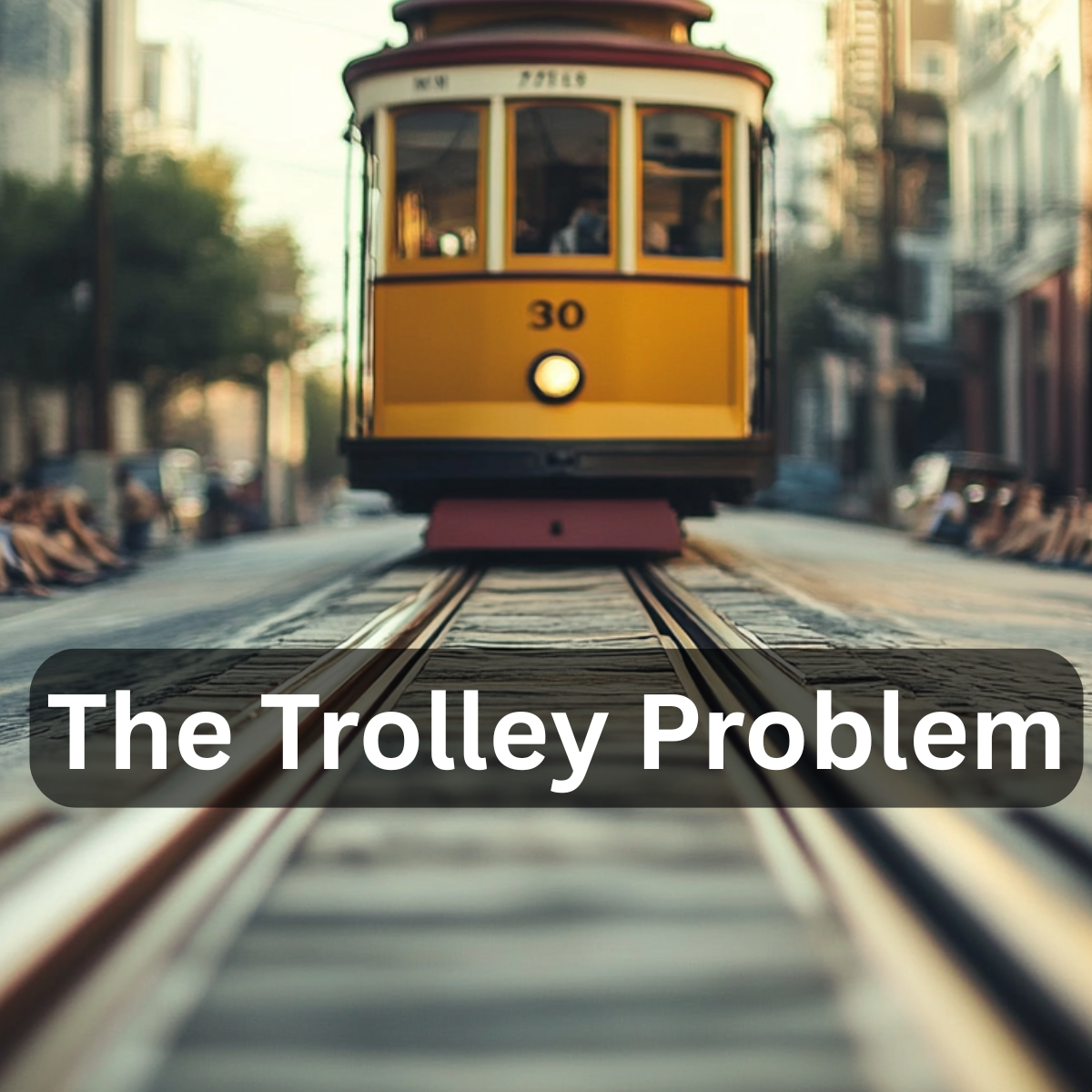I was presented with a classic moral dilemma recently. I was talking to a young entrepreneur who had a wild-eyed fascination with a new potential product idea. The idea itself isn’t important, but the dilemma I faced during that discussion is what I want to explore.
It seems to me that we all face these types of ethical considerations more frequently than we realize—and often we don’t stop to measure our response in any meaningful way. In this case, the young man believed he had an idea that could benefit society. He was so convinced that he planned to quit his job and dedicate all his time and energy to building it.
Now, I happened to know the topic area quite well—much better than he did, having several more years of experience. I was convinced that his idea was deeply flawed and would ultimately fail, once he encountered a few things I had already discovered the hard way. My initial reaction was to tell him so, hoping to help him avoid a painful failure.
But as I looked into his excited expression, I hesitated. This young man had so much passion and enthusiasm that—even though this particular idea seemed doomed—I believed he would inevitably uncover something greater. Perhaps even something that would impact millions of lives.
So what should I do? Crush his spirit with hard-earned truth? Or encourage him to march toward what I believed to be inevitable failure?
The Mentor’s Dilemma
This is a common ethical conflict—sometimes called “The Mentor’s Dilemma.” It’s a timeless tension between guiding and interfering. When should you protect someone from failure, and when should you let them walk their own path, mistakes and all?
Some argue the mentor has no right to make this decision for someone else. That the true ethical problem is the mentor’s arrogance—the assumption that they know best. Still, most of us feel a responsibility to help, to guide, to share what we’ve learned.
That’s why this is best examined using frameworks from moral philosophy—like the Doctrine of Double Effect, which can help us make sense of situations like this.
Truth, Harm, and the Doctrine of Double Effect
The Doctrine of Double Effect raises the question:
Is it morally permissible to withhold truth (a potential harm) if your intention is to preserve hope and encourage growth (a greater good)?
The classic Kantian answer is:
“You have a duty to tell the truth, regardless of consequences.”
The Utilitarian perspective, by contrast, would be:
“Let him pursue it—if the journey leads him to something meaningful, that’s the better outcome.”
Most of us prefer a third way: a middle path. Instead of killing the dream, we shape it. We ask thoughtful questions that invite self-discovery. We challenge gently. We lead without control.
That’s what I tried to do. It allowed me to honor my responsibility to guide, without extinguishing the passion that might turn out to be far more valuable than the idea itself.
Enter the Trolley Problem
But this approach brings with it another moral puzzle. The Doctrine of Double Effect forces a distinction between direct harm and foreseen but unintended harm. This creates room for a “middle path,” but also raises the question: where is the line?
Enter Philippa Foot, the British philosopher who challenged the adequacy of the Doctrine of Double Effect in her 1967 paper, “The Problem of Abortion and the Doctrine of the Double Effect.”
Foot wasn’t writing to advocate for or against abortion. Instead, she used the abortion debate to demonstrate how fragile and inconsistent the Doctrine of Double Effect could be when applied to real-life ethical dilemmas.
In doing so, she introduced what has become one of the most widely known thought experiments in ethics: The Trolley Problem.
The Classic Trolley Problem
Here’s the scenario:
A trolley is hurtling down a track. Ahead, five people are tied to the rails and cannot move. You are standing next to a lever. If you pull the lever, the trolley will switch to a side track—but on that track, one person is tied up.
Do you pull the lever, killing one person to save five?
This scenario distills two core ethical frameworks:
- Utilitarianism / Consequentialism
Morality is judged by outcomes.
Pulling the lever is morally right because it minimizes harm (1 death instead of 5). This is “the greatest good for the greatest number.” - Deontology
Morality is judged by principle, regardless of outcomes.
Pulling the lever is morally wrong because it involves the deliberate killing of one person. We must never use others merely as a means to an end.
Reframing My Dilemma
This helped me reframe my own situation.
From a utilitarian view, the choice is clear and convenient:
Don’t tell him anything. His passion and energy may one day help many people. One failed idea is a small price to pay.
From a deontological view, the choice is also clear—but very different:
Tell him the truth. You owe him honesty, even if it leads to discouragement.
But Foot’s true insight—and the reason her work helped me—is subtler.
She pointed out that in moral decisions, it matters not just what happens, but how and why it happens. Especially, she stressed the difference between:
- What we directly do (intend)
- What we merely allow to happen (foresee but do not intend)
With this in mind, I could reframe my role:
- Pulling the lever (telling him the truth) = I cause short-term harm (crushed hope) to prevent what I see as a greater harm (failure).
- Not pulling the lever (letting him continue) = I allow him to risk failure, trusting that he might learn, grow, and redirect.
Foot’s framework doesn’t give me the answer. But it gives me a lens—a clearer way to weigh my influence and responsibility.
Practicing for the Crossroads
Using this ethical lens, I began asking better questions:
- Am I certain enough of the outcome to justify intervening?
- Is my moral duty to reduce harm—or to honor autonomy?
- Can I speak truth in a way that nurtures passion, not extinguishes it?
That’s what makes the Trolley Problem so powerful. It doesn’t just challenge how we think—it shapes how we respond when real people are on the tracks.
The Real Moment
Of course, I didn’t think all this through in the moment.
When I was talking to that young entrepreneur—brimming with passion and possibility—I didn’t stop to weigh Kantian ethics or simulate the Trolley Problem in my head. I just responded.
But I didn’t respond with cynicism or superiority. I asked questions. I listened. I offered ideas to consider. I let him reach his own conclusions.
And now, reflecting on it, I realize: I was able to do that not because I had perfect wisdom in the moment—but because I had practiced.
I had already sat with the discomfort of moral complexity. I had rehearsed these dilemmas in quieter moments, with philosophers like Philippa Foot as my guide. I had already asked myself:
Is it better to speak a difficult truth if it risks extinguishing someone’s spark? Or better to let them walk into failure that might ultimately shape them into who they are meant to become?
Why Moral Philosophy Matters
These moments of ethical clarity don’t arrive fully formed.
They are rehearsed. Internally. Quietly. Ahead of time.
And so when we find ourselves, unexpectedly, at a moral crossroads—standing beside someone with their dreams on the line—we can respond not with panic or power, but with practiced compassion.
That, I believe, is the true value of moral philosophy.
It doesn’t just make us better thinkers.
It makes us better companions on the journey.




